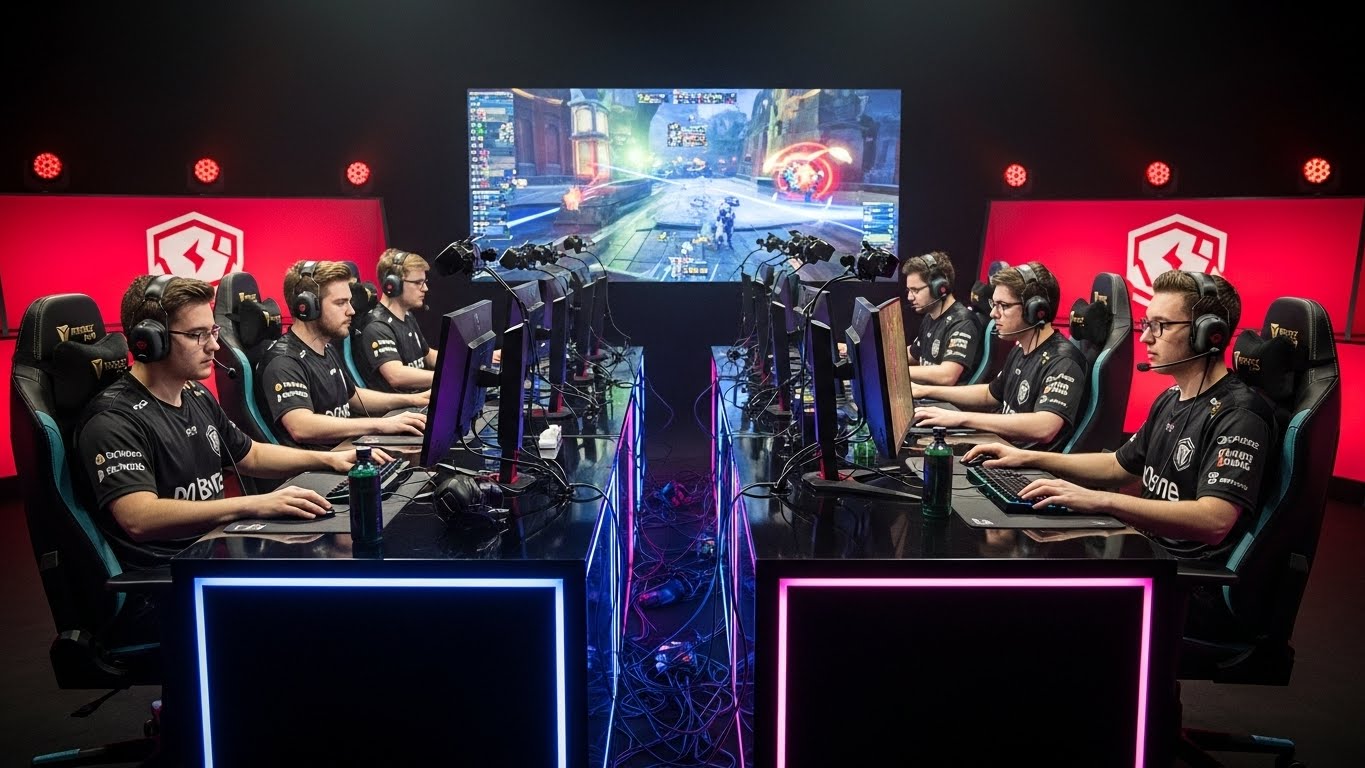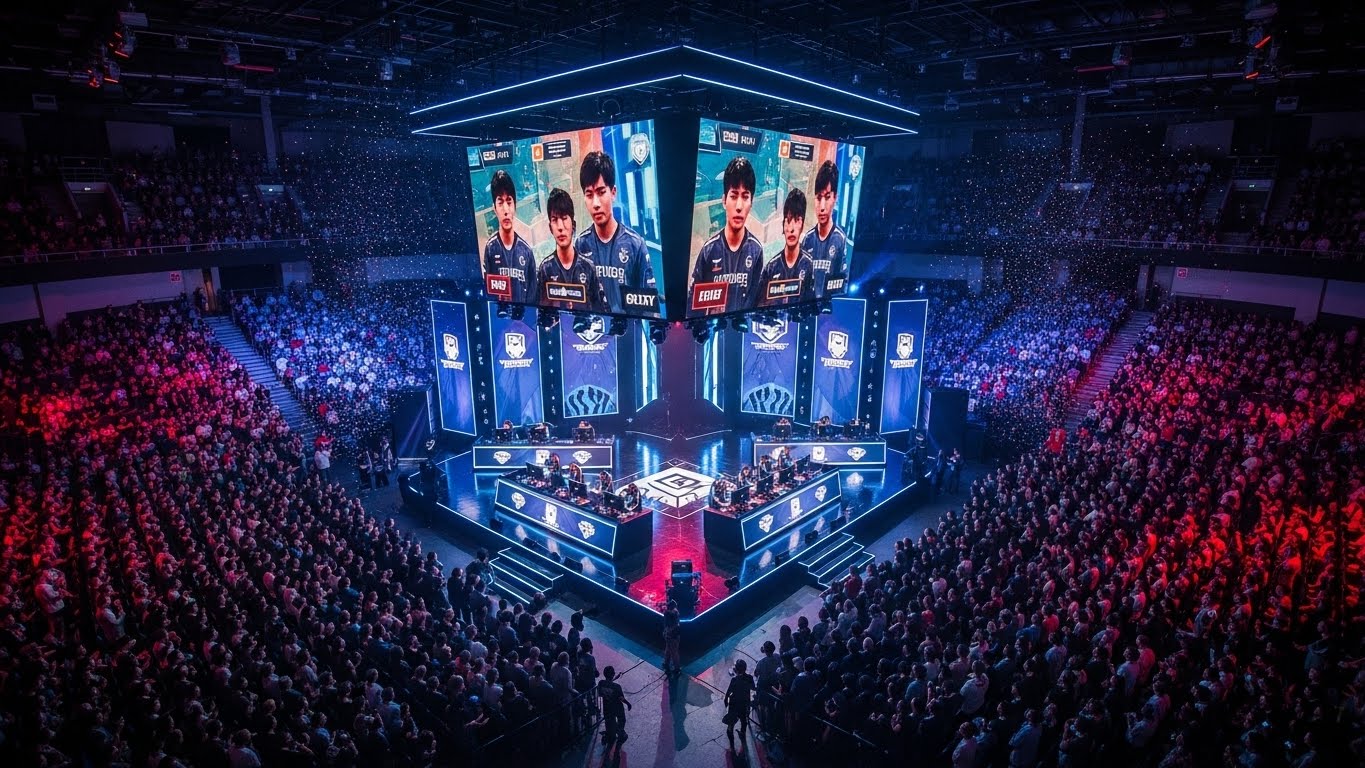Introduction: The Emergence of a Digital Revolution
Esports, or electronic sports, has emerged as one of the most influential cultural phenomena of the 21st century. Once dismissed as a niche pastime, competitive gaming now attracts millions of viewers, offers multi-million-dollar prize pools, and has created professional careers on par with traditional sports. The rapid growth of Esports demonstrates not only technological innovation but also the power of community, entertainment, and professional competition in the digital age.
This blog explores the history, growth, economic impact, cultural significance, and future of Esports, providing a comprehensive understanding of why it has become a global force.
The Origins of Competitive Gaming
Competitive gaming dates back to the early 1970s, when the first known video game tournament was held at Stanford University. Participants played Spacewar, and the winner received a subscription to a magazine. While modest by today’s standards, this event marked the beginning of organized gaming competition.
The 1980s brought the arcade era, where games such as Pac-Man, Donkey Kong, and Galaga created competitive environments. Players competed for high scores, and local leaderboards gave them recognition within their communities. By the 1990s, home consoles and PCs expanded the scope of competitive gaming. Titles like Street Fighter II, Warcraft, and Doom enabled more structured competitions, while the rise of the internet allowed players to connect globally.
Professionalization of Esports
The late 1990s and early 2000s saw the professionalization of Esports. South Korea emerged as a global hub, particularly through the popularity of StarCraft. Television networks broadcast matches, professional teams were formed, and players became celebrities. Gaming cafés, known as PC bangs, nurtured talent and contributed to a vibrant competitive scene.
Major international tournaments such as the World Cyber Games and the Electronic Sports World Cup provided platforms for players to compete for cash prizes. Organizations developed management structures, coaching, and analytics, creating careers that resembled those of traditional sports athletes. Competitive gaming had evolved from a hobby into a professional industry.
The Role of Online Streaming
The introduction of online streaming platforms transformed Esports. Before streaming, fans could only watch tournaments in person or through limited broadcasts. Streaming enabled real-time viewing worldwide, allowing audiences to interact with players and each other.
Streaming also allowed gamers to become personalities and influencers, building global followings and personal brands. Teams leveraged this exposure to attract sponsors, expand fanbases, and create engagement opportunities. Online communities flourished, providing spaces for discussion, analysis, and social connection, further solidifying Esports as a global cultural phenomenon.
Iconic Games That Shaped Esports
Several games have been instrumental in the growth of Esports.
- League of Legends became a cornerstone with strategic depth and global tournaments that drew massive audiences.
- Dota 2 gained fame for its record-breaking prize pools and highly competitive gameplay.
- Counter-Strike: Global Offensive provided a tactical shooter experience emphasizing teamwork and precision.
- Overwatch and Call of Duty combined fast-paced gameplay with professional league structures.
- Fortnite and PUBG popularized the battle royale genre, attracting casual players and expanding the Esports audience.
Each of these games contributed unique elements that shaped the competitive gaming landscape and helped expand its global reach.
Life of a Professional Gamer
Professional Esports players are often compared to traditional athletes. Daily routines include extensive practice, strategic analysis, teamwork development, and studying opponents’ gameplay. Players may live in training houses, attend boot camps, and receive support from coaches, analysts, and nutritionists.
The career is demanding, with long hours and high-pressure environments. Burnout and mental fatigue are common challenges, and the typical career span is short, often peaking in the early twenties. Despite these challenges, professional gaming offers rewards including fame, financial success, and the opportunity to influence millions of fans worldwide.
Esports as a Spectator Sport
Esports has evolved into a fully-fledged spectator sport. Live events attract thousands of fans to stadiums, while millions watch online. Commentators, or casters, narrate gameplay, analyze strategies, and amplify excitement, much like in traditional sports.
Fans engage with broadcasts through live chats, social media, and interactive platforms, creating a sense of community. Unlike traditional sports, spectators can connect directly with players and influence the narrative, making Esports uniquely immersive and engaging.
Economic Impact of Esports
Esports has become a multi-billion-dollar industry. Revenue comes from sponsorships, media rights, merchandise, ticket sales, and streaming platforms. Global brands invest heavily to reach engaged, younger audiences.
Professional organizations operate like franchises, managing players, marketing campaigns, and fan engagement. Prize pools in major tournaments have reached tens of millions of dollars. The industry also supports ancillary sectors such as content creation, event management, gaming hardware production, and technology development.
Technological Advancements Driving Esports
Technology underpins every aspect of Esports. High-performance gaming PCs, fast internet, and advanced peripherals enable competitive play at the highest level. Streaming technology ensures high-quality broadcasts for global audiences.
Emerging technologies such as virtual reality, augmented reality, and artificial intelligence are reshaping the industry. AI assists in performance analysis, strategic planning, and training, while VR and AR have the potential to create immersive competitive environments, changing the way both players and spectators experience Esports.
Cultural Significance of Esports
Esports has developed into a cultural phenomenon. Communities of gamers and fans transcend borders, languages, and demographics. Cosplay, fan art, social media engagement, and live events enrich the culture surrounding competitive gaming.
Esports has challenged traditional stereotypes about gamers, emphasizing discipline, strategy, and skill. The industry has influenced music, fashion, and entertainment, proving that gaming is a legitimate professional and cultural pursuit.
Education and Career Opportunities in Esports
Educational institutions have recognized the potential of Esports. Universities and schools now offer programs, courses, and scholarships dedicated to competitive gaming. Students can pursue careers as professional players, coaches, broadcasters, event managers, marketers, or game designers.
Esports education emphasizes teamwork, leadership, communication, and strategic thinking. Scholarships for talented players provide formal pathways into the industry, further legitimizing gaming as a viable career option.
Diversity and Inclusion in Esports
Esports has historically been male-dominated, but efforts to promote inclusivity are reshaping the industry. Women are increasingly visible as players, commentators, analysts, and content creators. Organizations and tournaments now actively focus on diversity, creating safe and welcoming environments.
Greater representation encourages participation across genders and cultural backgrounds. Success in Esports depends on skill, strategy, and dedication, making the industry inherently inclusive and merit-based.
Challenges Facing Esports
Despite its growth, Esports faces several challenges. Player burnout and mental health issues are significant due to high-pressure training and competition schedules. Career longevity is limited, necessitating wellness programs and organizational support.
Regulatory inconsistency remains a problem, as each game publisher governs competitions differently. Issues such as online harassment, cheating, and toxicity threaten the community’s integrity. Addressing these challenges is crucial for the sustainable growth and legitimacy of the industry.
Esports and Traditional Sports: Convergence and Collaboration
Initially, traditional sports and Esports were seen as separate worlds. Critics questioned the legitimacy of competitive gaming. Over time, collaboration has emerged. Sports franchises invest in Esports teams, sponsor tournaments, and engage digital audiences.
Both industries share core principles: teamwork, strategy, audience engagement, and competitive spirit. The difference lies in medium, with one being physical and the other digital. Collaboration expands opportunities, merging entertainment experiences and connecting traditional and digital audiences.
The Future of Esports
The future of Esports is promising and expansive. Emerging technologies, such as virtual reality, augmented reality, and the metaverse, will create immersive experiences for players and fans. Global tournaments are expected to grow in scale, introducing innovative formats and interactive features.
Institutional support, sponsorship, and fan engagement will continue to drive growth. Standardized regulations, improved player welfare, and sustainable career pathways will strengthen the industry. Esports is not a passing trend—it is a cultural and economic force poised to shape entertainment and competition for decades.
Conclusion: Esports as a Transformative Force
Esports has evolved from humble beginnings to become a global industry that merges technology, culture, and professional competition. Players, teams, and fans have built a dynamic ecosystem that blends passion, professionalism, and innovation.
From local tournaments to stadium events viewed by millions online, Esports proves the transformative potential of digital culture. Its influence extends beyond gaming, shaping careers, technology, and global communities. The era of Esports is here, and it is only set to grow in scale, sophistication, and impact.



